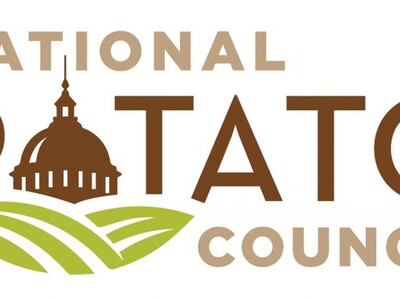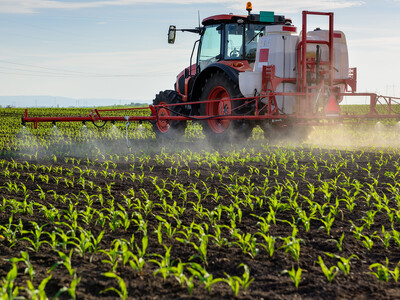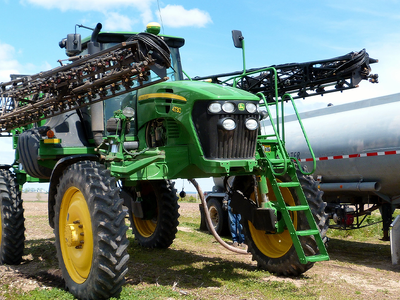Growing Chickpeas & Statements On GE Wheat Finding
Growing Chickpeas & Statements On GE Wheat Finding
I’m Lacy Gray with Washington Ag Today.
Last year was the first year for Chad Denny, a farmer near Fairfield, to try his hand at growing desi chickpeas, which are used for the hummus market, and he was more than happy with their performance and yield. So it comes as no surprise that he planted them again this year.
DENNY: I did more of what I did last year. I put in last year at a 130 acres. This year I put in 270.
Denny says that this was also the year for him to try his hand at growing the larger kabuli chickpeas which are raised for salads or canning.
DENNY: I put in a few. I’m trying down in our lower farm down on the Snake river, and planted like four acres in is all - just to kind of see how they do.
As far as pests, Denny says chickpeas aren’t really bothered.
DENNY: I would say bug problems, yes there’s less. We don’t have to spray them for bugs like we do for peas and lentils to an extent. But the disease, we have the Ascochyta Blight and we put on a fungicide for it. We’re kind of used to all this fungicide because of the rust problems in the wheat so it’s really not a huge issue.
The USDA Animal Plant Health Inspection Service announced on Friday that the finding of genetically modified wheat in an Oregon field is a single isolated occurrence and that all data collected thus far shows no indication of the presence of GE wheat in commerce. Representatives for the Washington, Oregon and Idaho Wheat Commissions released statements as well showing support for the APHIS investigation and that they hope APHIS is close to concluding its investigation and supplying the market with definitive answers before harvest begins.
I’m Lacy Gray and that’s Washington Ag Today on the Ag Information Network.

















